In This Month’s Newsletter
Presidents and Baseball
With a presidential election in the offing, it seemed an opportune time to share some interesting factoids about past presidents and baseball.
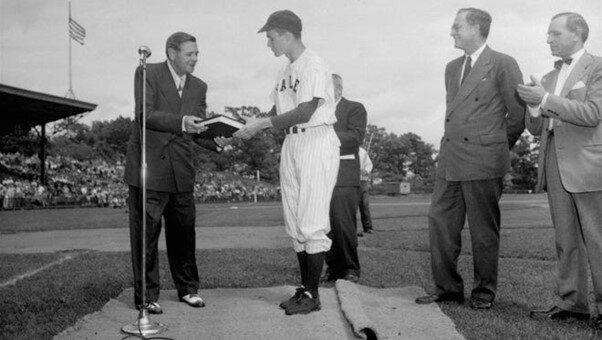
Yale captain and first baseman George H.W. Bush meets Babe Ruth at the 1948 NCAA baseball championships.
George H.W. Bush was the first baseman and captain of the Yale team that contested the first two NCAA baseball championships in 1947 and 1948. Bush remained ever passionate about the game, keeping his well-oiled first baseman’s mitt in the drawer of his desk in the Oval Office of the White House during his tenure as president.
His son, and future president George W. Bush, was part of a consortium that purchased the Texas Rangers in 1989.
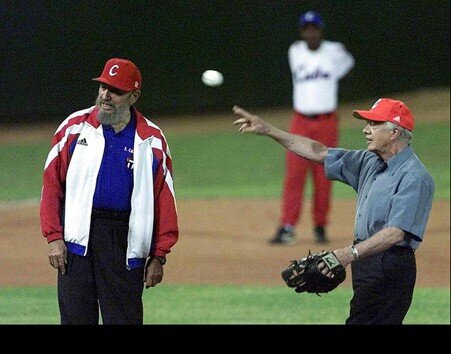
Former president Carter, with Fidel Castro standing by, throws first pitch in game in Havana, Cuba in May 2002.
William Howard Taft is credited with the first Washington Opening Day ceremonial first pitch, in 1910. F.D.R. holds the record for presidential first pitches with 11. Since Taft, Jimmy Carter and Donald Trump are the only presidents never to have thrown a ceremonial first pitch, although Carter eventually did after his time in office.
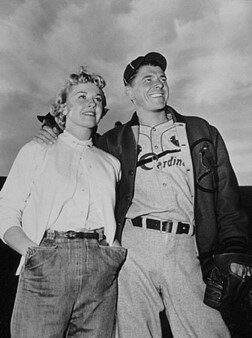
Doris Day and Ronald Reagan in The Winning Team
Grover Cleveland (Pete) Alexander was named after one president, and played by another (Ronald Reagan) in the movie about his life, The Winning Team (1952).
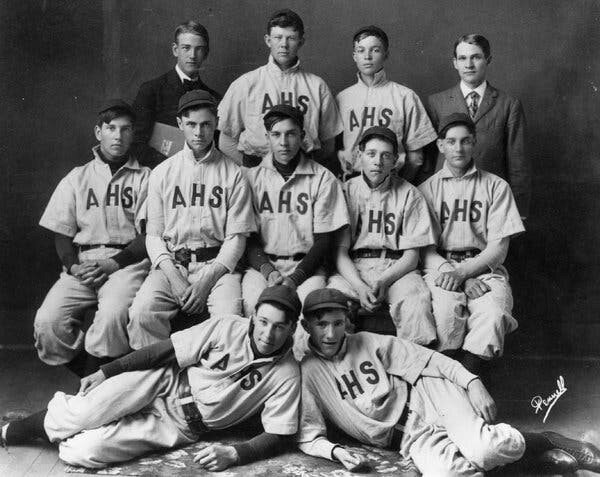
Dwight Eisenhower (top row, second from right) and his Abilene High School teammates (1908).
Dwight Eisenhower was the only president to play professional baseball. In the summer of 1909, prior to enrolling at West Point, he played under the assumed name of Wilson (so as not to lose his amateur standing and be disqualified from sport at West Point) for his home town Abilene Red Sox in the Central Kansas League.
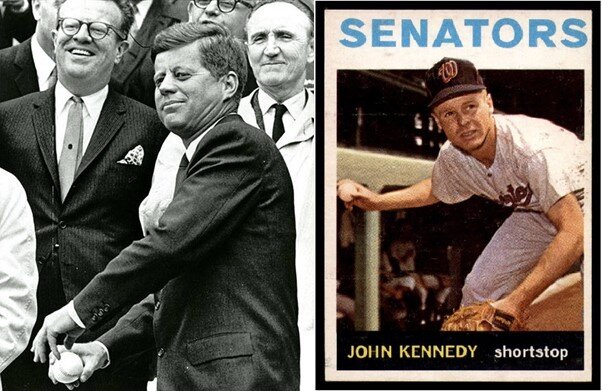
When J.F.K. was in the White House, there was another John Kennedy in Washington, playing for the Senators. And the two John Kennedy’s shared the same birthday: May 29.
Coming Soon
A bunch of projects are in the works for Diamond Mind Online.
For lovers of the Classic (career-rated players) game, new salaries will be coming in November, along with a sim stats update. (Sim stats henceforth will be updated three times annually prior to and in conjunction with salary adjustments.)
We’ll be adding a wrinkle to the “supply-and-demand” usage methodology for adjusting player salaries, weighting player usage based on the number of times players were used by teams that reached the playoffs.

In December, there will be a new batch of players added to the Classic player pool, headed by C.C. Sabathia and Victor Martinez.
There is plenty happening on the single-season (SSG) side as well:
In the coming months, we’ll be adding the 1920 and 1921 seasons, as well as the 2020 season.
We’ll be extending “real life” splits from 1934 back to 1928, with concomitant changes to player ratings and salaries for the seasons 1928-33.
As part of our ongoing revision of seasons created in the early days of the Diamond Mind PC game, the 1946, 1956, 1960 and 1962 seasons have been rerated from scratch and will be replaced in their entirety.
We’ll be modifying the way adjustments to PTL work, so that, if you increase the default PTL percentage from 110%, not only will this also increase PTL v L and R proportionately, it will increase the 10% playoff series PTL proportionately as well.
And we’ll be adjusting SSG salaries to incorporate further refinements to our salary calculation algorithm, together with marginal player usage weighting.
Diamond Mind Customers Name Their All-Time Favorites
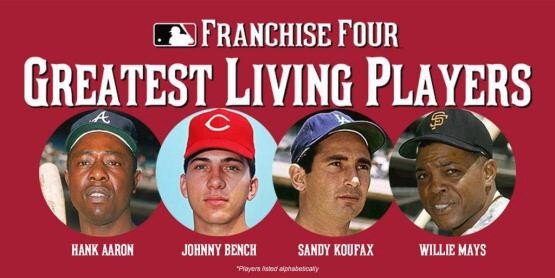
Our last two newsletters have featured the Diamond Mind Single-Season All-Time Team (consisting of the highest-salaried player at each position from the Diamond Mind SSG player pool) and the Diamond Mind Classic All-Time Team (consisting of the highest-salaried player at each position from the Diamond Mind Classic player pool).
This month we have another All-Time Team of sorts, comprised of the favorite players of Diamond Mind Online customers. Charles (cjennings) Hanlon got things started with his message board post:
Your favorite nine, off the cusp, don’t think too long or hard about it.
Customer favorites were not necessarily all-time greats, though there are plenty of those who topped the final tally. Many lists were tilted towards the customer’s favorite team and/or players they actually saw play, and there’s a notable absence of “old timers”. Here’s a summary of the final results:
Catcher – Johnny Bench topped the list with 6.5 votes. (If a customer named more than one player at a position, each got half a vote.) Carlton Fisk was second with 5 votes, with Yogi Berra and Gary Carter each garnering 4.
First Base – Keith Hernandez, Don Mattingly and John Olerud were equal-first with 4 votes each.
Second Base – Joe Morgan was the most popular second baseman, equalling his Big Red Machine teammate, Johnny Bench, with 6.5 votes. Ryne Sandberg was second (5.5), with Roberto Alomar and Jackie Robinson on 4 votes each.
Third Base – Brooks Robinson garnered 8 votes at the hot corner, with George Brett on 6.5 and Mike Schmidt on 5.
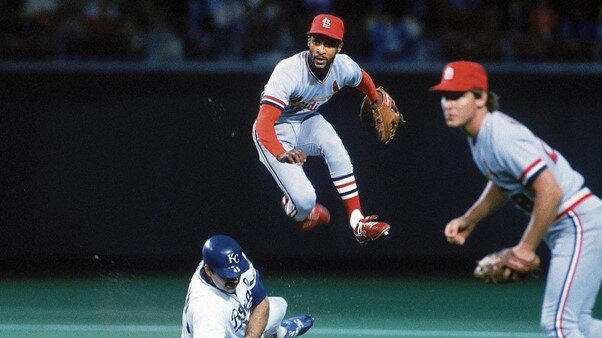
Shortstop – The Wizard of Oz was the single-most popular player at any position with 12.5 votes. Robin Yount was a distant second with 5 votes.
Left Field – Rickey Henderson received 8 votes, Carl Yastrzemski 5 and Barry Bonds 4.
Center Field – Willie Mays was the second-most popular player overall with 12 votes. Ken Griffey Jr polled 7.5 and Mickey Mantle 6.5.
Right Field – Roberto Clemente topped all right fielders with 8.5 votes, followed by Henry Aaron (7) and Al Kaline and Dewey Evans (4 each).
Starting Pitcher – In what might seem a mild surprise, Greg Maddux, with 7 votes, edged out Sandy Koufax (6), Bob Gibson (5) and Tom Seaver, Jim Palmer and Nolan Ryan (4 each).
Although not included in the “favorite 9” position list, some customers included a DH and a reliever in their lists. Frank (the Big Hurt) Thomas topped David Ortiz at the DH position (5 to 3.5 votes) and Mariano Rivera (6) and Goose Gossage (3) were the only relievers to receive more than 2 votes.
SSG Tournament – Just Playoffs
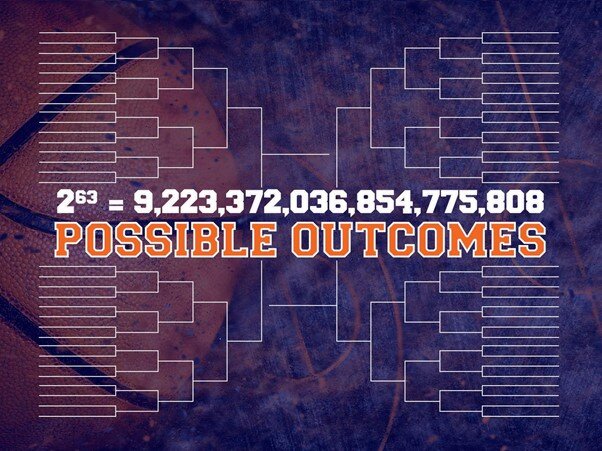
Larry Macdonald (our resident spreadsheet guru) has come up with a tournament concept that should be getting underway as you are reading this. Here’s how he described it:
We’ve all been in those leagues where one team wins 105 games and loses in the playoffs to a team that won 83. A best-of-seven series is a crap-shoot. So how do you make the playoffs a good test? Imagine Sports created new league formats with fewer than 12 teams, and you can play a league with just two. So that’s what we are going to do.
Let’s get 64 of us and set up a bracket like March Madness. We will play in two-team leagues, 162 games against your opponent and the winners advance to the next round, and it will take six rounds to declare a winner. We’ll play turbo paced so we can get them done reasonably quickly.
Each round will be played in a different era. Each league will be assigned a decade. In the first round, there will probably be three leagues played in the eighties, three in the thirties, etc. The salary cap will vary, as will the weekly income. There will be a smattering of leagues where the pitchers have to hit, but the majority will be DH. Auto draft, no duplicate players (but season of player may be changed).
If you’re fortunate enough to advance, you’ll have a completely new team each round, always a different decade, different money, and your pitchers may have to hit in one of your leagues. But if you lose, it’s because your team wasn’t as good as your opponent over 162 games – or 163 as two-team leagues have a 1-game playoff if there’s a tie.
Imagine Sports will be offering prizes for the Final Four.
The Tipping Point
Each month we’ll offer a few tips in this space that may come in handy for the beginner as well as the experienced team owner.
There is an endless variety of leagues possible at Imagine Sports. If you can’t find one that suits your particular preferences or interests, here are some tips for creating one yourself that does.
Classic or SSG?
This is the most fundamental choice to be made in creating your league.
The Classic player pool consists of players from throughout baseball history – including the Negro Leagues and Nippon Professional Baseball – who have been rated on the basis of their entire careers (or, if they had lengthy careers, their peak stretch of consecutive seasons). There are over 5,000 players total in the Classic player pool.
The Single-Season (SSG) player pool consists of players from the Major League seasons 1922-2019 (with 1920-21 and 2020 coming soon), with a different version of each player for each season they played. There are more than 75,000 player-seasons in the SSG pool.
If you select the SSG player pool, you have four options to choose from as far as how multiple seasons of the same player are treated in your league: you can allow one version of a player only, which will be “locked in” once the season starts; you can allow one version of a player only, but that version may be changed throughout the season; you can allow multiple versions of a player in your league, but only one version on a team at a time; or you can allow multiple versions of a player without limitation. However, it is not possible under any circumstances for there to be more than one of the SAME version/season of a player in use at any one time.
Among the popular permutations used in SSG leagues is requiring every team in the league to draft a different version of a player from a list of players who will be on every team in the league, and limiting a team to the roster of a single real-life team, but allowing the owner using the team to draft any version of a player who was on their team’s roster.
Salary Cap
You can set the salary cap for your league from a low of $50 million to a “high” of no cap at all. Some customers enjoy the challenge of low cap leagues, others prefer leagues that pit the best against the best.
One thing to keep in mind is that, if you set a low salary cap, your players will outperform their historical stats/ratings, because the level of competition they will face is weaker than they faced in real life. But if you set a high salary cap, everyone’s performance will be depressed, because pitchers will be facing “murderer’s row” line ups every time out, and hitters will be facing Cy Young calibre pitchers every at bat.
One popular custom league permutation is a superstar format, where each team selects one star player, but the rest of their roster is limited, which gives star players an opportunity to post really impressive seasons.
Income Payments
In Classic standard leagues, you get $2 million at the end of each of the first six weeks of play, with $4 million at the end of week seven; in SSG standard leagues, you get $4 million weekly. In a custom league, you can alter these amounts in any way you like (and in 3 games per day leagues, you also will receive daily interest on your cash balances, and can take out loans against future income, and you can vary the percentage interest credited/charged on each).
A popular custom league option is the so-called “rags to riches” format, where a team starts off with a low salary cap, but receives huge weekly income payments. In leagues with daily interest, there may also be a very high daily interest percentage, which creates a conundrum whether to spend or hoard your income as you receive it.
Other League Characteristics
The are many other features you can modify, which will have a big impact on you league. Two in particular are your choice of the Era of Play in which your league will be set, and whether you will have Injuries on or off.
Popular Formats
Other popular format worth noting are franchise and “captains leagues”.
In franchise leagues, teams are limited to players who played for their chosen franchise. This might be limited further to a range of years or particular seasons as well.
In captains leagues, each owner selects one or more players as their captain(s), and the rest of their team is limited to players who were teammates of their captain(s).
Baseball Reference has an Oracle feature that allows you to see all major league teammates of a player. One day we hope to add an oracle feature to our player search capabilities to facilitate drafting captains league teams.

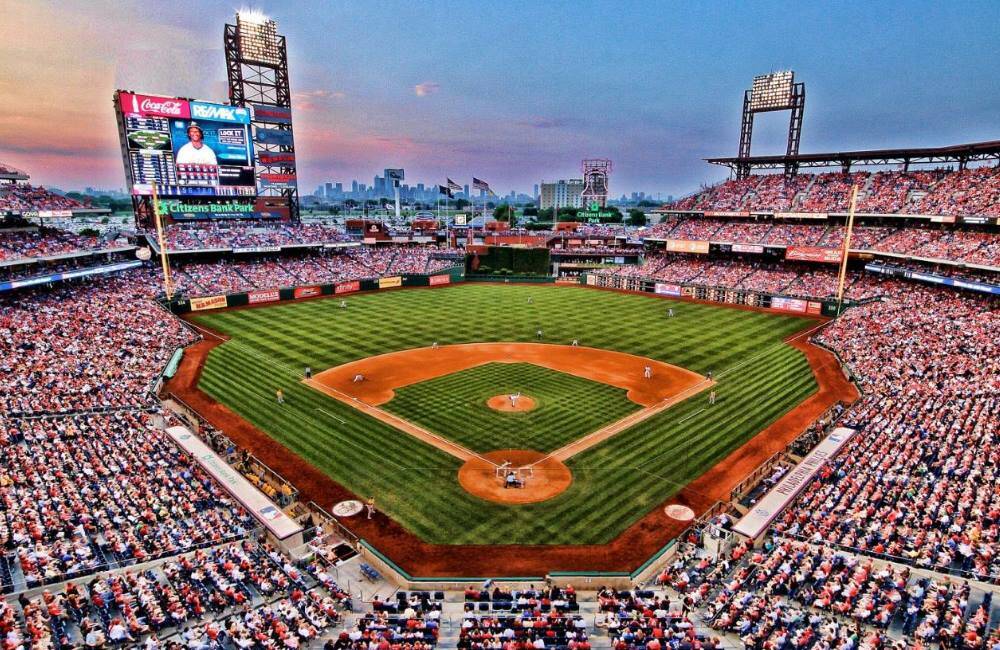
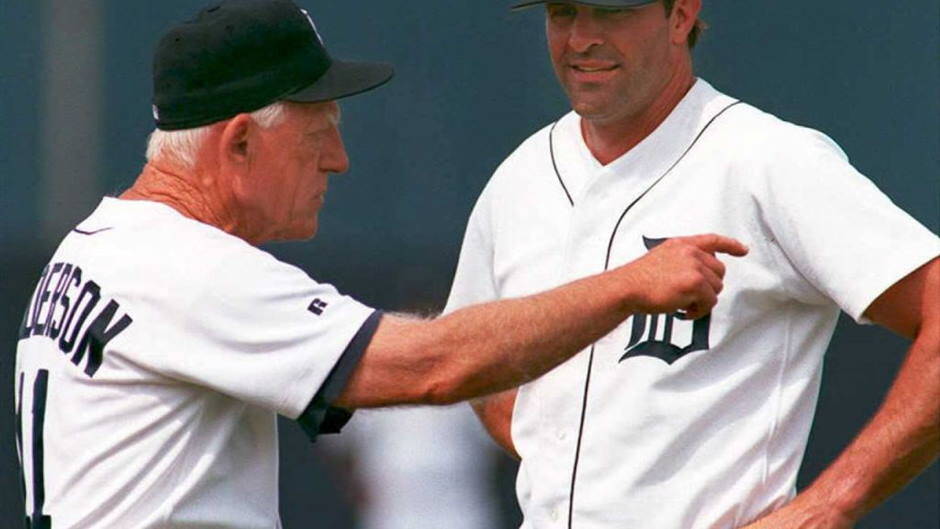
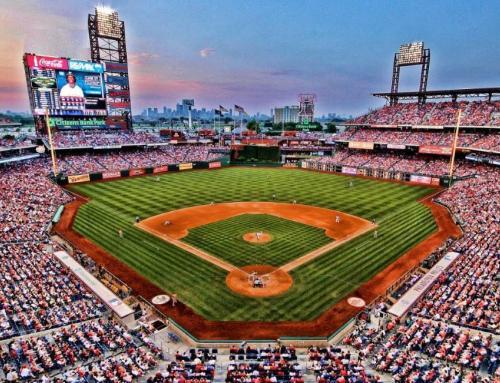
Leave A Comment